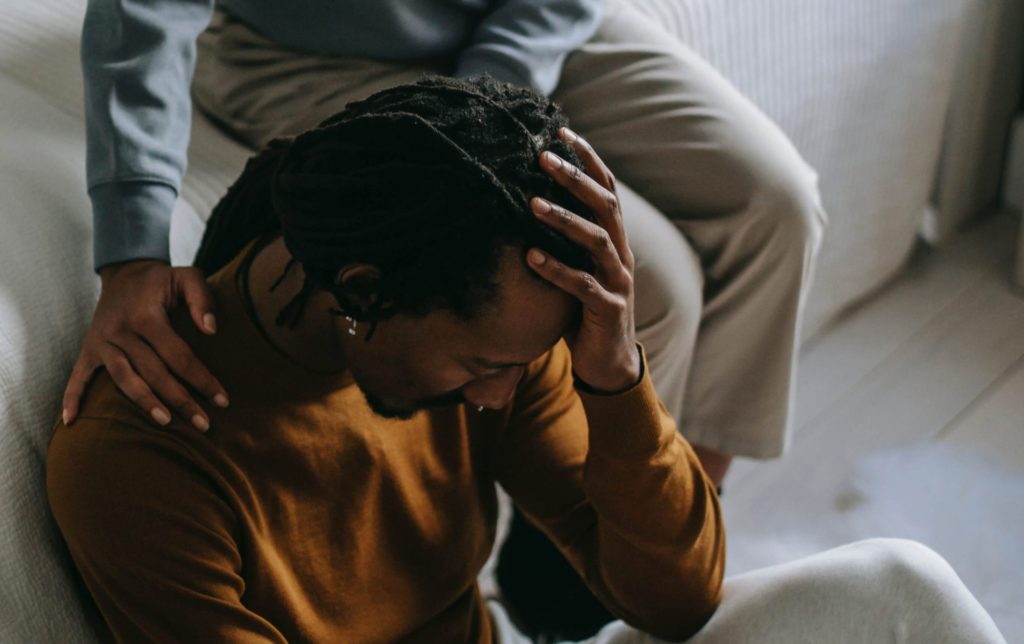Grieving after the loss of a loved one can be an incredibly difficult experience, but it can be especially challenging when the loss is sudden or unexpected. Sudden or unexpected losses can leave us feeling unprepared and unable to cope with the intense emotions that come with grief. In this blog post, we’ll explore some of the unique challenges of grieving after a sudden or unexpected loss and provide some tips for coping with this difficult experience.
The experience of sudden or unexpected loss is a unique one. When someone we love dies unexpectedly, we are often left feeling shocked and overwhelmed. We may feel a sense of disbelief or denial, and may find it difficult to process our emotions. We may feel numb or disconnected from the world around us, and may find it difficult to focus or complete even the simplest of tasks.
One of the unique challenges of grieving after a sudden or unexpected loss is the lack of preparation. When we lose a loved one after a long illness or chronic condition, we may have had time to prepare ourselves emotionally and mentally for the loss. We may have had the opportunity to say goodbye, to express our love and appreciation, and to make peace with the situation. When a loved one dies suddenly or unexpectedly, we don’t have the luxury of this preparation. The shock and confusion of the loss can leave us feeling lost and uncertain, and can make it difficult to process our emotions.
Another unique challenge of grieving after a sudden or unexpected loss is the sense of injustice that we may feel. When someone dies unexpectedly, we may feel a sense of anger or frustration at the unfairness of the situation. We may feel that our loved one was taken from us too soon, or that their death was preventable. This sense of injustice can complicate our grief and make it more difficult to process our emotions.
In addition to these challenges, sudden or unexpected loss can also be complicated by feelings of guilt or regret. When we lose a loved one unexpectedly, we may find ourselves questioning whether we could have done something differently to prevent the loss. We may feel guilty for not expressing our love or appreciation more often, or for not being there for our loved one when they needed us. These feelings of guilt and regret can intensify our grief and make it more difficult to move forward.
So, how can we cope with the unique challenges of grieving after a sudden or unexpected loss? Here are some tips:
- Seek support: It’s important to surround yourself with a strong support network after a sudden or unexpected loss. This can include family members, friends, or a grief counselor. Talking to others about your feelings and experiences can help you process your grief and feel less alone.
- Take care of yourself: Grief can take a toll on our physical and emotional health, so it’s important to take care of yourself during this difficult time. This can include getting enough sleep, eating a healthy diet, and exercising regularly. Taking care of yourself can help you feel more grounded and better able to cope with your emotions.
- Allow yourself to grieve: It’s important to allow yourself to grieve in your own way and on your own timeline. Don’t feel like you have to rush through your grief or put on a brave face for others. Give yourself the time and space you need to process your emotions and come to terms with your loss.
- Find ways to honor your loved one: Finding ways to honor your loved one can help you feel connected to them and provide a sense of comfort during this difficult time. This can include creating a memorial or tribute, participating in a charity walk or event in their honor, or starting a scholarship or foundation in their name.
Grieving after a sudden or unexpected loss can be a long and difficult process, and it’s important to remember that there is no “right” way to grieve. Everyone experiences grief differently, and it’s important to honor your own feelings and emotions as you navigate this difficult time.
If you are struggling to cope with the loss of a loved one after a sudden or unexpected event, know that you are not alone. It’s okay to reach out for help and support. Consider talking to a therapist or grief counselor, joining a grief support group, or reaching out to a trusted friend or family member for support.
At the end of the day, it’s important to remember that grief is a natural and normal response to loss. It may feel overwhelming and all-consuming at times, but it’s important to remember that it will get easier with time. By taking care of yourself, seeking support, and allowing yourself to grieve in your own way, you can begin to heal and find peace after a sudden or unexpected loss.









